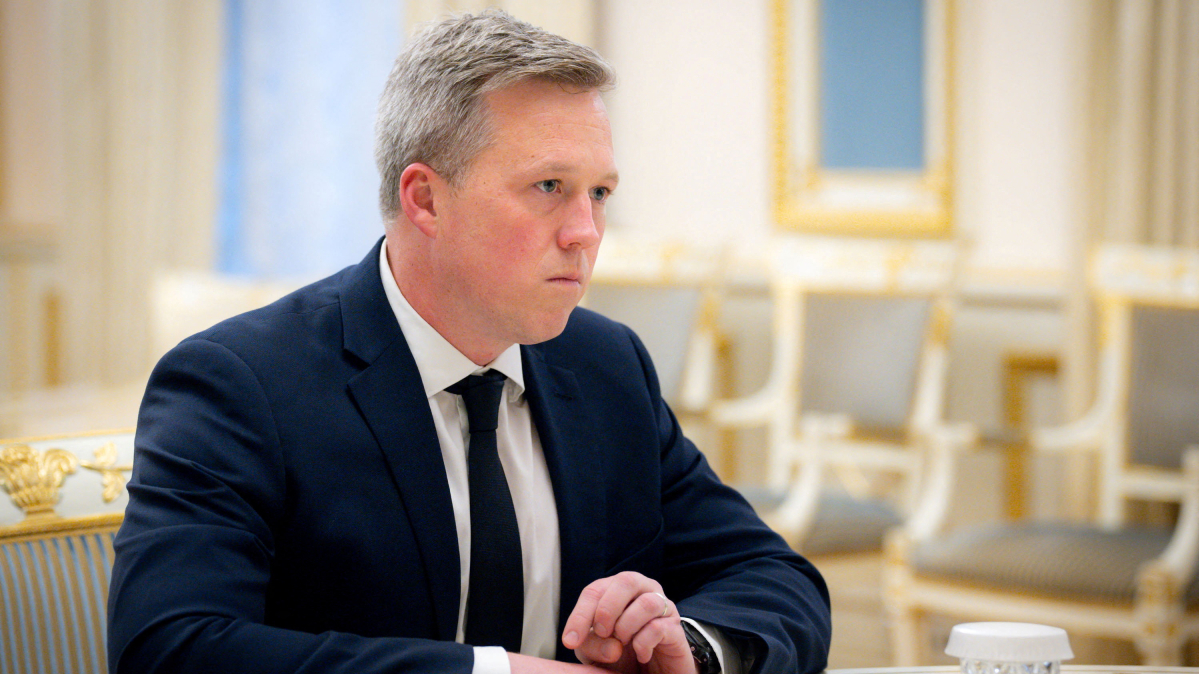Cuba fuel crisis turns into waste emergency as trash piles up in Havana amid energy blockade
Cuba’s fuel crisis has turned into a waste crisis, with garbage piling up on most street corners in Havana as many collection trucks lack enough pet...

U.S. Army Secretary Dan Driscoll held talks with Russian officials and Ukrainian representatives in Abu Dhabi on Monday, as the Trump administration accelerated its push to secure a peace agreement to end the war in Ukraine, according to U.S. officials.
Driscoll met with the Russian delegation late Monday, with discussions expected to continue into Tuesday, a U.S. official told reporters. The precise makeup of Moscow’s delegation remains unclear. Driscoll was also due to meet Ukraine’s military intelligence chief Kyrylo Budanov, according to people familiar with the situation.
The meetings in the UAE follow an intense round of negotiations in Geneva and Kyiv, where U.S. and Ukrainian officials worked to narrow major gaps over a proposed peace plan. Driscoll, who has been “pretty hot and heavy” in recent talks, according to a U.S. official, personally delivered the administration’s contentious 28-point framework to President Volodymyr Zelenskyy. After hours of negotiations, Washington and Kyiv drafted a revised, more Ukraine-friendly 19-point outline, though the most sensitive issues — including territorial concessions and Ukraine’s future relationship with NATO — were left for decision by Trump and Zelenskyy.
The original U.S. proposal, which Kyiv and European allies viewed as heavily skewed toward Moscow, would require Ukraine to cede additional territory, accept strict limits on its military and permanently abandon NATO membership — terms long rejected by Ukraine as capitulation. The plan also failed to ease European concerns over broader Russian ambitions.
U.S. policy toward the war has shifted repeatedly in recent months. President Trump’s August summit in Alaska with Russian President Vladimir Putin stirred fears that Washington might accept key Russian demands, though the meeting ultimately resulted in increased U.S. pressure on Moscow.
In recent days, Kyiv has shown cautious optimism. Zelenskyy said following the Geneva talks that he had been fully briefed by his negotiators and believed “necessary steps to end the war can become doable,” noting that “many of the right elements” had now been incorporated into the revised framework. Still, major diplomatic work remains, and Zelenskyy said he would soon discuss unresolved issues with Trump.
Budanov, who has overseen some of Ukraine’s most daring operations inside Russia and maintained rare communication channels with Moscow to support prisoner exchanges, was appointed by presidential decree as one of nine officials authorized to participate in negotiations with the U.S. and Russia.
The White House said Monday there were no immediate plans for a Trump–Zelenskyy meeting, but spokesperson Karoline Leavitt said Washington felt “optimistic” after Geneva. She emphasized that the U.S. was “engaging with both sides equally in this war” and that any agreement would require Moscow’s formal acceptance.
Driscoll’s talks in Abu Dhabi are expected to continue through Tuesday. The White House did not immediately respond to requests for comment.
U.S. Ambassador to NATO Matthew Whitaker said China has the power to bring an end to Russia’s war in Ukraine, arguing that Beijing is enabling Moscow’s military campaign.
Austria’s Janine Flock won the gold medal in the women’s skeleton event at the Milano-Cortina 2026 Winter Olympics on Saturday.
Iran’s Supreme National Security Council Secretary Ali Larijani said the United States could evaluate its own interests separately from those of Israel in ongoing negotiations between Tehran and Washington.
U.S. Secretary of State Marco Rubio on Sunday (15 February) called it “troubling” a report by five European allies blaming Russia for killing late Kremlin critic Alexei Navalny using a toxin from poison dart frogs.
Israel’s National Guard is preparing to deploy drones capable of firing tear gas at Palestinians in the occupied West Bank, including East Jerusalem, as part of security preparations ahead of the Muslim holy month of Ramadan, Israeli Channel 12 reported on Saturday.
The Prime Minister, Mark Carney, announced on 16 February that the Honourable Janice Charette has been appointed as the next Chief Trade Negotiator to the United States.
Cuba’s fuel crisis has turned into a waste crisis, with garbage piling up on most street corners in Havana as many collection trucks lack enough petrol to operate.
Day 10 of the Milano Cortina 2026 Winter Olympics delivered high-stakes semifinals, dramatic finishes and classic podium moments across Milan and the Italian Alps. Photographers captured split seconds of symmetry before puck drops, explosive turns on the ice and triumphant celebrations.
The mother and widow of Russian opposition leader Alexei Navalny marked the second anniversary of his death on Monday, as European allies released an assessment saying he was poisoned, adding that the Russian state had the means, motive and opportunity to deploy the lethal toxin.
U.S. Secretary of State Marco Rubio said Washington is ready to pursue diplomacy with Iran as nuclear talks resume in Geneva, using a visit to Budapest on Monday (16 January) to reaffirm both U.S. negotiating aims and strong ties with Hungary ahead of its April election.
You can download the AnewZ application from Play Store and the App Store.

What is your opinion on this topic?
Leave the first comment